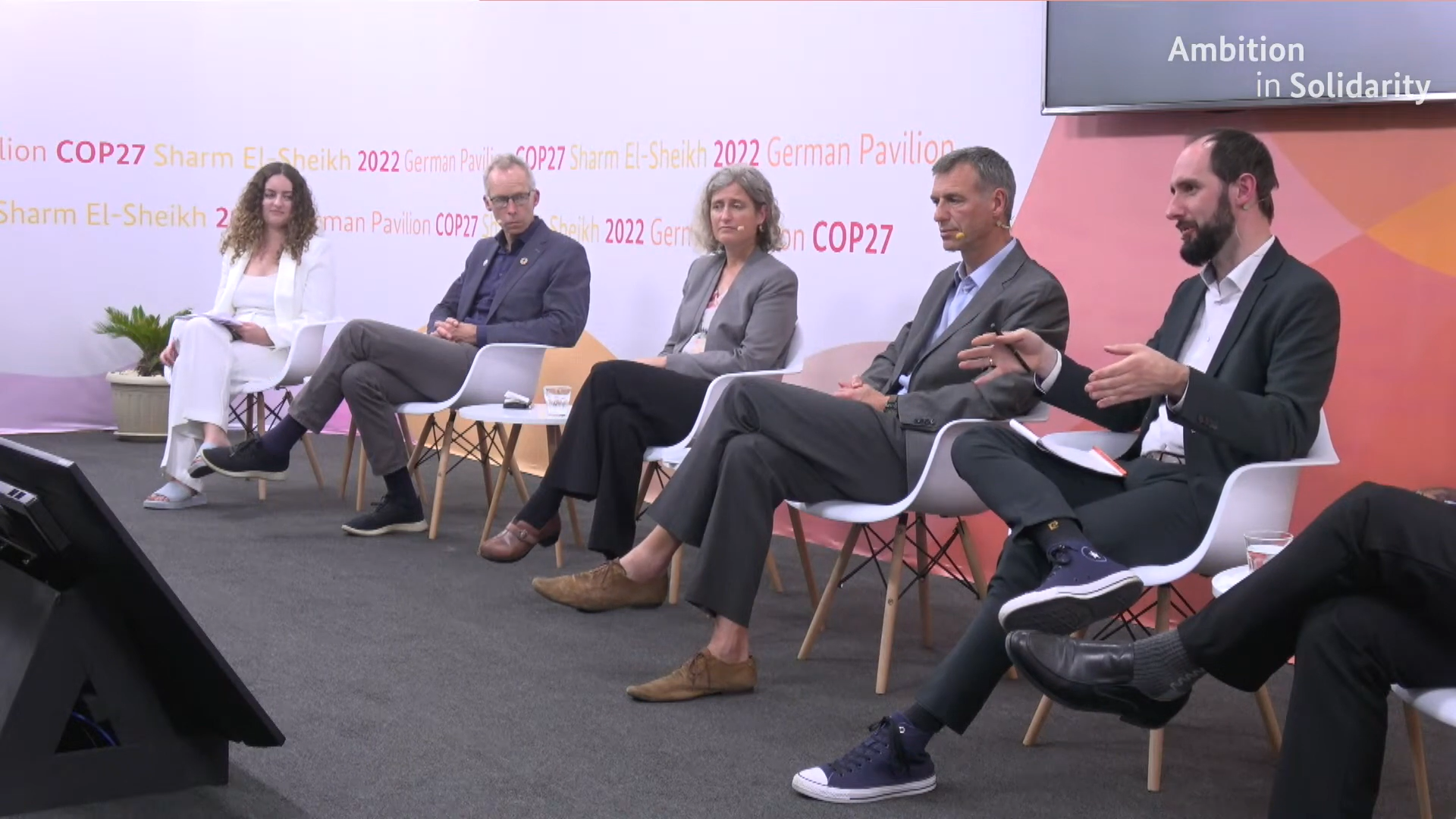COP27: The PIK team joins climate experts in Sharm-el-Sheikh
Although COP27 failed to advance a rapid reduction of greenhouse gas emissions, it would be unfair to view this COP purely in terms of its shortcomings. It showed that there is movement in terms of agenda setting as well as in efforts for greater climate justice.
For example, COP27 put a markedly stronger focus on agriculture and the need for adaptation in this sector by hosting the first food-systems pavilion as well as developing a new four-year plan on agriculture and food security – the Koronivia work programme – and a new initiative aimed at increasing funding for a transformation of the agricultural sector by 2030. In this context, Prof. Dr. Johan Rockström, one of the PIK directors, and Prof. Dr. Christoph Gornott, leader of the PIK working group on adaptation in agricultural systems, participated in a panel discussion titled “Food security in a world of multiple crises” organized by the German Pavilion. The experts, along with Rachel Bezner Kerr and Henry Neufeldt, both IPCC lead authors on food-related issues in the IPCC Working Group II, and Sixbert Mwanga, Executive Director at the Climate Action Network (CAN) Tanzania, discussed possible solutions for sustainable and climate-resilient agricultural systems as well as their feasibility and co-benefits. According to Johan Rockström, climate policy and practice need not only look at biophysical tipping points but also at social tipping points, which are increasingly reflected in a widespread abandonment of agricultural livelihoods across the African continent – and across different parts of the value chain. As Christoph Gornott noted, climate impacts do not only occur in agricultural production but also in other parts of the value chain like, for example, processing, storage or transportation. Hence, adaptation efforts in the agricultural sector require holistic approaches.
Likely, the biggest success of COP27 was achieved regarding loss and damage: For the first time in COP history, the issue made it truly on the agenda and the unprecedented importance given to loss and damage materialized in the establishment of a global loss and damage fund – the so-called Global Shield against Climate Risks – through which rich countries are to compensate poorer countries for the losses and damages caused by climate change. Although the details of such a fund are not clear yet, for example, who exactly will pay into the fund and according to which criteria, it was universally received as a truly positive outcome of COP27 and an important step in achieving greater climate justice.



